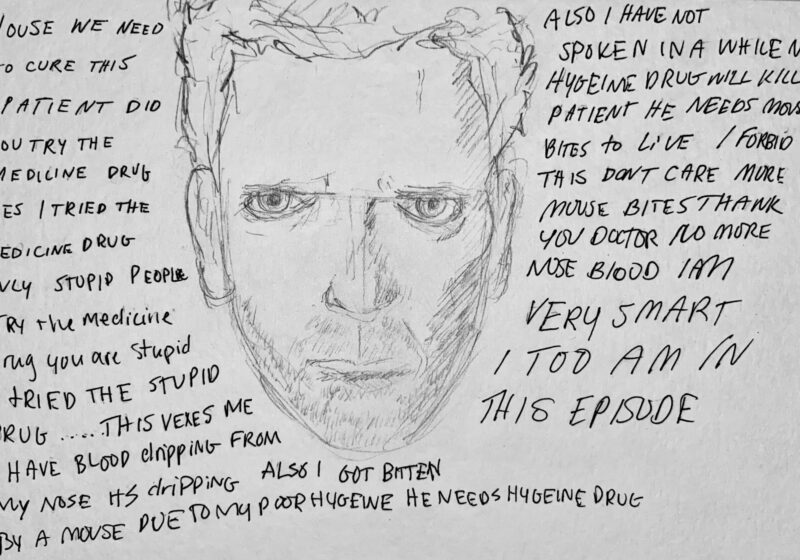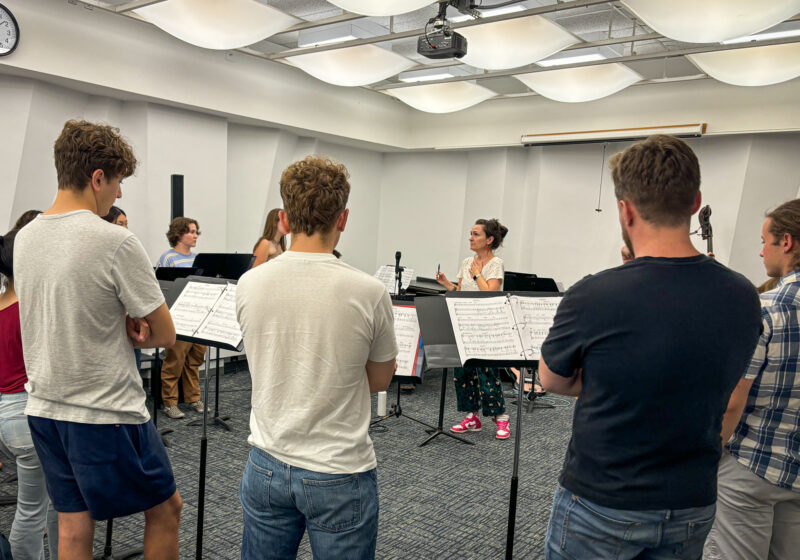The Banff Film Festival made its annual stop in Rochester on Feb. 23, at Snow Country Sports. According to Banff representative Courtney Scott, the objective of the Festival is to convey to its viewers a sense of “mountain culture.” This usually means presenting films concerned with outdoor sports, but the films also sometimes relate to those who live or work in mountainous regions.The film festival has its roots at the Banff Center in Alberta’s Canadian Rockies, where the initial festival first took place in 1976. Thirteen years ago, the festival’s aim expanded and it began to reach out to other communities.The Festival now visits Rochester as a stop on its “World Tour,” which visits 180 cities in 28 countries. This November in Alberta, the judges selected eight films to exhibit as the best of their kind from a pool of 300 films from 34 countries. Cash and prizes are awarded to the winners.The festival has a special place in the hearts of many UR Outdoor Club members. Current President of UROC and four-time Banff attendee Nadia Alber said that the Festival “got me hooked” on outdoor sports. UROC member and three-time participant Audrey Stewart says that she goes to the festival for “inspiration.” She also said that “UR always cleans up” at the outdoor equipment giveaway that the Festival hosts yearly.The first film to be shown this year was “Focused,” in which hotshot skiers showed off their skills in the backcountry. At one point in the film, one of the skiers demonstrated his prowess by jumping off cliff faces in a pair of water-skis from the 1970s. This film has a Rochester connection, since a scene was supposedly filmed on the bunny hill at the Swain ski resort.Next up was “French Fries to Go.” This film centered on Colorado resident Charris Ford, who advocates the environmentally friendly use of biodiesal by driving a modified pickup fueled by refined, used french fry oil. Cruising the countryside in his earflap hat and sunglasses, Charris spreads his message by providing hard facts about his fuel system through intelligent conversation and rap. The third film was “Wehyakin,” which followed international kayakers from locales such as Norway and Iceland. It got considerable applause from the audience after one kayaker got almost impossible air before crashing into a pool at the bottom of a rock face. The longest film of the evening was “Eiger.” In this film, two German climbers attempted to climb this famed and deadly mountain using gear similar to that used by the first climbers to reach its peak in 1938. The duo went to great lengths to recreate the period equipment, and talked to two of the original climbers, Hekmair, the expedition’s leader, and Herer, of “Seven Years in Tibet” fame, now both in their 90s. After completing several harrowing climbs over intimidating sections of the mountain with names like “The Death Traverse” and “The Difficult Crack,” and suffering the pains of using old and unfamiliar equipment, they succeeded in reaching the summit.Other films included “Unlimited Winter,” which was an exhibition of cross-country skiing tricks to a techno beat, “Rockstars,” a showcase of mountain biking and long board skateboarding, “Janica Kostelic,” about Croatia’s star downhill skier who was the first woman to win three gold medals in one Olympics at Salt Lake City. Finally, there was “Frontline Freaks: Biscuit,” in which a small dog displayed his amazing rock climbing abilities. McVay can be reached at jmcvay@campustimes.org.
calendwatch
Housepital-ity
I fear I may have started this job off on the wrong foot. Right off the bat, when I stumbled into the reception of URMC, I committed the critical silly of asking where to go.
Eastman
New vocal jazz program at Eastman
Not a trace of the thunderous applause from just a moment earlier lingers in the air; instead, the crowd is hushed, breath caught in their chests for fear of breaking the spell.
Australia
Pesto is sus
This guy is twice as large as any of his siblings and even larger than his parents. He is anything but a little guy. His stature is … actually a little bit suspicious.





